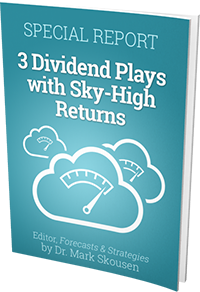Since 1990, when the United States had more than 12,000 commercial banks, the number of financial institutions in the country has nearly halved to hit 6,263. Unfortunately, a good portion of the consolidation has been driven by the unintended consequences of heavy-handed government regulation.
You do not need to take my word for it, since The Wall Street Journal published a column in the past week that explained a large number of small banks either are closing or selling to bigger competitors because of onerous regulations, not poor lending practices. Many of the rules came from the Dodd-Frank financial law and other legislation, wrote the newspaper’s columnist David Weidner, who has spent the past 15 years in New York covering Wall Street. Although the new rules largely stemmed from problems at big banks, the regulations also applied to small banks that lack the personnel and technology to meet all of the new requirements.
I have been an opponent of too much government interference in the private sector in the past and the shrinking number of banks is a perfect example of the risk of lawmakers overreaching. So-called “reforms” always seem to go too far and cause unexpected problems. The U.S. government bailout of big banks in 2008 and 2009 contrasts to the safe and stable operation of many small banks that serve their communities, lend to responsible people who can repay their debt and operate prudently. It is a shame that so many banks have closed, and that the bigger banks that are more prone to take huge risks and offer inferior customer service are becoming the survivors.
Big bank bailouts are bad government policy. Bailouts remove the moral hazard of having owners and management accept the responsibility and the losses caused by their bad decisions. Another flaw with bailouts is that they add debt to the institutions that often already are heavily leveraged. The concern is that as banks grow in size, they become “too big to fail.” Banks need to be managed properly, avoid reckless risks and not operate with the expectation that the government will save them from demise if they run aground financially.
The risk of further bailouts is real. During the FreedomFest conference taking place in Las Vegas today through Saturday, Peter Schiff, CEO and chief global strategist at Euro Pacific Capital, warned that banks are vulnerable to a significant rise in interest rates. Financial institutions that lack adequate reserves for loan losses are especially vulnerable.
If interest rates rose to 7%, J.P. Morgan and all the big banks would fail, Schiff warned. The banks have made long-term mortgages at 3% and 4%, since the Federal Reserve Bank has been keeping rates artificially low with its monetary policies, Schiff said. A significant jump in rates could bankrupt banks, unless the federal government re-finances them, he added.
Clearly, we need competent bankers, less draconian regulation and reduced federal deficits to help give us a more prosperous future than the economic slowdown we are enduring now.
You Blew It! Know Who You are Electing
This week’s feature focuses on the importance of American voters to elect fiscally responsible lawmakers to stem the runaway deficits that federal, state and local governments are amassing. Stockton, Calif., recently filed for bankruptcy and it could be the tip of the iceberg.
Dinseh D’Souza, a bestselling author, showed his new film, “2016: Obama’s America,” last night at FreedomFest’s Anthem Film Festival in Las Vegas and unveiled previously unreported information about what he described as “anti-colonial” views that have affected President Obama’s decision-making in the White House. Obama has left both conservatives and liberals mystified and disappointed during his administration.
D’Souza masterfully traced Obama’s formative years and identified key people who influenced him, including the president’s absentee father. Obama took courses and was mentored by several people who espoused “anti-colonial” and even communist views. Those people considered America, a country founded through revolution, as a colonial power that needed to have its influence diminished. Indeed, reduced respect and regard for American policy interests has been exhibited continuously during the Obama administration.
D’Souza interviewed a number of people who knew Obama and his father. Those people include Obama’s half-brother, George Obama, who is living in poverty in Kenya. PBS broadcaster Tavis Smiley is among those who have criticized Obama for not making a bigger issue out of addressing poverty in America. As D’Souza pointed out in his provocative film, Obama apparently is not doing anything to help his half-brother, who is living an impoverished life in Keyna.
At the end of the movie, D’Souza concludes with the words: “Love him. Hate him. You don’t know him.” Americans need to take these words to heart when casting ballots. Learn about the politicians who are running for office. America can ill-afford another four years of irresponsible spending and elected officials who are too fearful or inept to address the situation.
AEIOU,
![]()
Mark Skousen
Producer, FreedomFest
“The world’s largest gathering of free minds”
www.freedomfest.com
July 11-14, 2012, Bally’s/Paris Resort
(Just think 7-11 in Vegas)
Wikipedia
Newsletter and trading services
Personal website
P.S. I just found out that my book, “Economics on Trial” is up for Freedom Book of the Month for July. To vote, go to http://freedombookclub.com/vote.html.
Upcoming Appearance
Today’s challenging market conditions require even more knowledge than ever for investors and traders like you to keep pace with the latest market intelligence to safeguard your portfolio and to profit from opportunities that only may be available for short periods of time. Join me at this year’s MoneyShow San Francisco, August 24-26, at the San Francisco Marriott Marquis to hear recommendations and advice about how best to profit in 2012 and beyond! Register FREE today by clicking here, by going to MarkSkousen.sanfranciscomoneyshow.com or by calling 1-800/970-4355 and mentioning priority code 027882.



